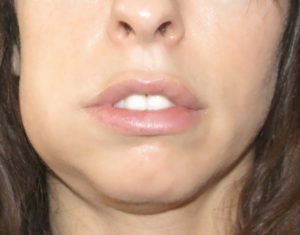 Everyone knows the saying that teeth should be protected from the youth. However, we think about this more often only when the treatment or extraction of the tooth is already necessary.
Everyone knows the saying that teeth should be protected from the youth. However, we think about this more often only when the treatment or extraction of the tooth is already necessary.
This procedure is stressful for the entire body, and also damages many tissues in the oral cavity.
After removal of the tooth, the cheek can swell, pain is observed. Whether it is necessary to worry in this occasion, how much the edema keeps in norm or rate and when it is necessary to address to the doctor?
Contents
- In which cases is the swelling of the cheeks not dangerous?
- Reasons for the regular occurrence of edema
- What if the cheek swells?
- How to relieve swelling?
- Dangerous symptoms
In what cases is the swelling of the cheeks not dangerous?
When removing wisdom teeth, gum tissue becomes inflamed, the cheek swells. In this case, you should not worry, after a few days everything should be normalized. Do not worry and in the following cases:
-
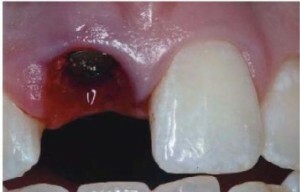
Blood clot
there is no increased and increasing temperature;
- edema does not increase;
- there is no increasing pain;
- well after the extraction of the tooth is tightly closed with a clot of blood.
Observe your body for 24 hours and if the anxiety symptoms do not go away, then you should immediately call your doctor.
Reasons for the regular occurrence of edema
Doctors call several reasons why the cheek swells after the operation. First of all, it is worth remembering that tooth extraction is an operation in which tissues are damaged.
Some patients may experience fever, discomfort, swelling of the gums. Most often this is not dangerous, the tissues are quickly restored and come back to normal. Swelling of the cheek may be caused by the patient's special sensitivity to medicines.
Chest swelling occurs in the following cases:
- with a complex tooth extraction;
- removal on a background of purulent inflammation;
- hypersensitivity and predisposition of the person to the appearance of edema.
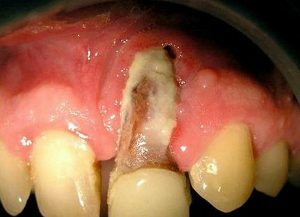 Swelling may occur if the mouth is not properly sanitized. In this case, there is inflammation of the tissues, infection may occur.
Swelling may occur if the mouth is not properly sanitized. In this case, there is inflammation of the tissues, infection may occur.
To avoid this outcome, carefully follow the recommendations of the dentist after the operation.
Stress can also cause swelling. Patients who suffer from hypertension are urged to take sedatives and antihypertensives before they are removed.
What should I do if my cheek is swollen?
The first thing to do in this situation is not to panic. Stress can only exacerbate the situation, pain and discomfort will only intensify. If there is no mounting pain and a rising temperature, nothing is worth doing. If the inflammatory process is not present, the tumor will leave in some days itself.
How to relieve swelling?
 To reduce the swelling and remove the pain will help cold compress. To do this, you can use a chilled hot water bottle or a wet towel. Do not bother with physical exertion, you need more rest. If possible, refuse to eat food and drink.
To reduce the swelling and remove the pain will help cold compress. To do this, you can use a chilled hot water bottle or a wet towel. Do not bother with physical exertion, you need more rest. If possible, refuse to eat food and drink.
To reduce edema and relieve pain, you can use special gels( Kamistad, Holisal), but before that you should always consult your dentist.
Dangerous symptoms
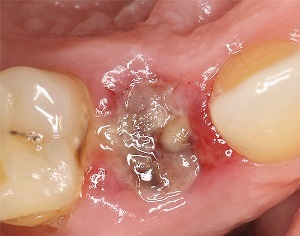
Alveolitis
Usually, edema appears within 24 hours after the tooth is pulled out. If the cheek is swollen after a few days and it hurts, then this may indicate the onset of inflammation and suppuration. Suppuration can begin in the very hole( alveolitis).
In this situation, to make any independent attempts at treatment is meaningless, immediately you need to go to the clinic, in order for the doctor to clean the tooth extraction site with special equipment.
Some patients after surgery observe the appearance of a small bruise in the oral cavity. If it is small and does not bother the patient, then you do not have to worry. In the case if it increases and becomes inflamed, it is necessary to consult a specialist.
The dentist in this case makes a cut across the gum and opens the hematoma.
If there is no clot in the well, this is also a reason for contacting a specialist."Dry hole" can lead to the development of inflammation, the pain will constantly increase. In this case, it is meaningless to wait, only a qualified specialist will help.
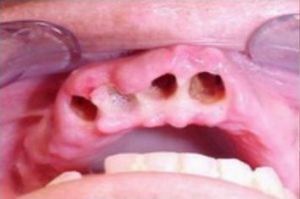
Dry hole
After removal of the tooth, the cheek may swell and due to an allergic reaction. Such situations arise extremely rarely, because before the operation the doctor necessarily finds out from the patient what preparations he can develop an allergy.
If allergic edema does occur, the amount of histamine will be increased when the blood is examined.
This situation is very dangerous for the patient's life, because swelling can go to the respiratory tract. There is also a risk of anaphylactic shock.
About possible complications after tooth extraction in detail:
Take care of your teeth and contact the dentist in a timely manner!
